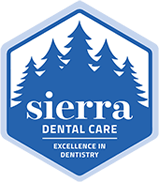Routine Dental Cleaning Procedure
When you arrive for your appointment, our dental hygienist will take X-rays and photographs of your teeth. These X-rays and photographs can help track the progress of your oral health over time. They will also use a periodontal probe to measure the depth of your gums. This probe will be used to determine if there is any gum disease present. Once your teeth have been examined, you’ll head into the treatment room, where our hygienist will begin their cleaning process by removing plaque and tartar above and below the gum line using special hand instruments with tiny rubber bristles. Next, they will floss between each tooth before polishing them with a special fluoride paste that contains mild abrasives. Fluoride treatments are another important part of oral hygiene care. It helps to remineralize teeth and reverses some damage caused by plaque and acid. It also makes the enamel stronger and more resistant to decay. After you’ve been treated, our hygienist will advise you on oral hygiene practices to follow at home to promote healthy teeth and gums.
What Is the Difference Between a Routine Dental Cleaning and a Deep Cleaning?
Routine dental cleaning is a preventive measure to remove plaque and tartar from the teeth before they can cause any damage. A deep cleaning, also known as a scaling session, is a more intensive procedure performed when someone has gum disease. Our dentist will use special instruments to reach below the gum line and remove the deposits from the roots.
Different Types of Teeth Cleaning
1. Scaling and Root Planing (Deep Dental Cleaning)
A scaling session, also known as deep cleaning, is the most intensive dental cleaning. Our dentist uses ultrasonic instruments with plastic tips to remove tartar and plaque without damaging the gums or tooth enamel like metal picks do. Scaling also helps cure gum disease by removing diseased tissue and encouraging healthy regrowth.
Root planing is a type of deep cleaning done to remove plaque and calculus from the roots of the teeth. This procedure is typically performed when someone has gum disease. Our dentist will use special instruments to reach below the gum line and remove the deposits from the roots. Root planing helps to reduce inflammation and encourages healthy gum regrowth. It is usually performed in conjunction with scaling.
2. Gross Debridement
Gross debridement is a less invasive dental cleaning than scaling or root planing. It removes plaque and tartar from surfaces that are not easily accessible with a toothbrush, such as in and around the gums and between the teeth. The gum tissue is usually inflamed and swollen, so the buildup needs to be removed before the hygienist can complete the prophylaxis and sometimes even before the doctor can perform an exam. In other words, it is a preliminary procedure that needs to be done before any additional procedures. Gross debridement is not recommended for people with gum disease because it can cause further damage.
3. Periodontal Maintenance
Unlike preventive care, periodontal maintenance takes care of existing oral health issues. Periodontal maintenance is a dental cleaning done every three to six months to prevent further gum disease. It is less intensive than scaling and root planing but the dental hygienist will still remove tartar between the teeth and gums. They will also examine your gums for inflammation. If they see any infection or inflammation in these pockets, then the dental hygienist will flush the area with antiseptic to help with disinfection and controlling the infection or inflammation.
4. Prophylaxis Oral Cleaning (Routine Dental Cleaning)
An oral prophylaxis cleaning is a routine dental cleaning done every six months to remove plaque and tartar buildup from the teeth. This cleaning is an important treatment for halting the progression of periodontal disease and gingivitis. It is less intensive than a periodontal maintenance cleaning.
Is It Painful to Get Your Teeth Cleaned?
Regular dental cleanings are not painful at all. The periodontal probe will only touch on the surface of your gums, so it shouldn’t feel uncomfortable. If you have a bad gag reflex, it may be uncomfortable for you to open your mouth very wide or lie back in the chair. If there is any pain be sure to speak with our dentist so they can find out if there are any other underlying issues with your teeth.
At Sierra Dental, we aim to provide the best preventive care to keep your teeth healthy. If you would like to schedule a routine teeth cleaning or have questions concerning any of our other services please contact us today!

